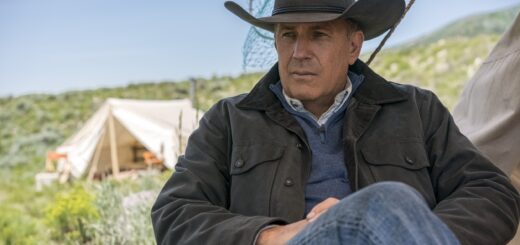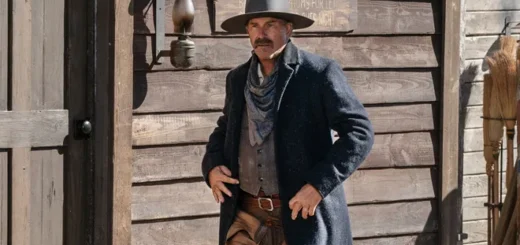Before Yellowstone: Kevin Costner Shined in This Overlooked Clint Eastwood Crime Drama
Kevin Costner Shines in Clint Eastwood’s Overlooked Masterpiece, A Perfect World
To any cinephile over 30, it may feel strange to label Clint Eastwood’s A Perfect World as “underrated.” And yet, a quick Google search would tell you that the 1993 crime drama often falls into that category. But for those familiar with Eastwood’s directorial filmography—and for fans of Kevin Costner’s more nuanced performances—this film is anything but forgotten. In fact, A Perfect World stands as one of the most emotionally powerful collaborations between actor and director, easily ranking among the best in both men’s careers.
But rather than get lost in personal rankings or debates about critical reception, it’s more important to focus on why this film continues to resonate so deeply—especially for those who grew up without a father figure.
A Story That Speaks to the Fatherless
For anyone who grew up in a single-parent household, especially under the shadow of an absent father, A Perfect World hits harder than most crime dramas. It taps into a quiet longing—a childhood fantasy of connection, protection, and unconditional love from a father who was never truly there. When you grow up with that absence, you tend to idealize what a dad could have been. You create memories that never happened: playing catch in the yard, getting picked up from school in a cool car, going to football games together. And when that father does make rare appearances, however fleeting or disappointing, you hold on to every moment like it’s gold. You internalize guilt that was never yours to begin with.
That’s the unspoken undercurrent of A Perfect World. Though it appears on the surface to be a crime thriller about a fugitive who kidnaps a child, at its heart, it’s a quiet meditation on fatherhood, trauma, and the lasting emotional wounds of childhood.
Building Trust on the Run
Set in 1963 Texas, the story follows Butch Haynes (Kevin Costner), an escaped convict fleeing with his unstable cellmate, Terry (Keith Szarabajka). Early in their escape, they break into a home where Terry attempts to assault a woman—forcing Butch to intervene. Amid the chaos, an 8-year-old boy named Phillip (T.J. Lowther) stumbles into the scene. Rather than terrorize the child, Butch surprises both Phillip and the audience by showing empathy. He gently encourages the frightened boy to point a gun at him and say, “stick ’em up”—a moment that establishes unexpected trust.
When a neighbor threatens them with a shotgun, Butch takes Phillip and escapes. While it begins as a hostage situation, it slowly transforms into something far more complex: a surrogate father-son bond formed on the open road.
As the manhunt begins, Chief Texas Ranger Red Garnett (Clint Eastwood) leads the pursuit, accompanied by a young criminologist (Laura Dern) and a trigger-happy FBI agent (Bradley Whitford). Butch and Phillip’s journey, however, unfolds on a much more intimate scale—full of small conversations, moments of joy, and lessons learned. Butch never intends to harm the boy; in fact, he treats Phillip with care, exposing him to a life of possibilities far beyond the restrictive upbringing he’s known as a Jehovah’s Witness.
Butch’s empathy is born from his own painful past: raised by a prostitute and abused by a father who was either absent or worse. So when he sees children suffering at the hands of their parents—or anyone else—he reacts with a fierce moral clarity. For Phillip, this stolen road trip becomes a rare glimpse of emotional freedom, and for Butch, it’s a chance to be the man he never had.
A Quiet, Powerful Character Study
A Perfect World feels older than its 1993 release would suggest—but in the best possible way. Coming on the heels of Eastwood’s Unforgiven and Costner’s Dances with Wolves, the film showcases two artists with nothing left to prove, yet everything to express. Eastwood wisely steps back from the spotlight, giving Costner room to deliver one of his most restrained and affecting performances. His portrayal of Butch is layered, empathetic, and heartbreaking.
This isn’t a high-octane thriller, despite the chase elements. It’s a character study built on quiet moments: a shared meal, a car ride, a glance. Eastwood’s direction allows those subtleties to shine, crafting a film that’s more interested in emotional truths than plot mechanics. The violence, when it comes, is impactful precisely because it’s not the focus. Instead, what lingers is the fragile bond between a broken man and a lonely boy.
More Than a Crime Drama — A Cinematic Reflection on Lost Boyhood
A Perfect World is not just a film about fugitives. It’s a story about the pain men carry, the emotional inheritance of fatherlessness, and the healing power of human connection. It’s about how a boy can come to idolize even a flawed man if he simply listens, protects, and believes in him. And how that fragile bond can become the most meaningful relationship either of them has ever known.
Whether it’s truly “underrated” is up for debate. What’s not debatable is that A Perfect World stands as one of the most emotionally resonant and beautifully acted films in Clint Eastwood’s long directing career—and one of Kevin Costner’s finest performances. If you’re a fan of either artist, or if you prefer your films with depth, humanity, and hard-earned emotion, this is one you shouldn’t miss.


